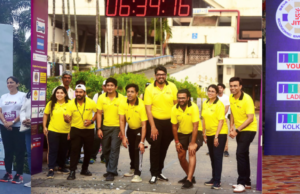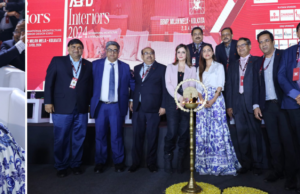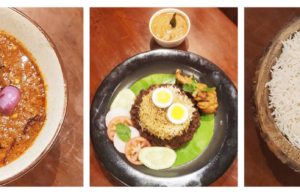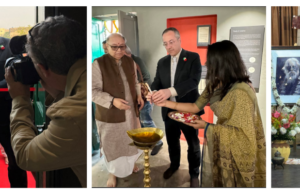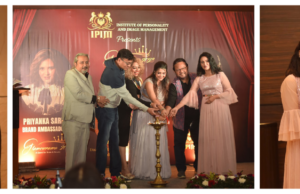
WoT's Hot
Assamese Film Bags Best Foreign Film Award At Hollywood International Cinefest
A proud moment for us all when " Xoixhobote Dhemalite" or "Rainbow Fields" won the award for best foreign film at the Hollywood International Cinefest in Los Angeles in 2017. It was another feather in the cap for National Award winning director, Bidyut Kotoky!
With this award, Bidyut has proved yet once again that he's a director to be reckoned with in the field of films dealing with social issues − stories based on actual incidents skillfully woven into fiction and facts. His astuteness and ability to tell a tale with flair, yet give a humane touch relieving the stark facts, make his movies special. The narrative in the background provides an effective insight into the complexity of pent up emotions, characters and dynamics of changing relationships in a conflict zone.
The film had its world premiere at IFFI Goa, under the prestigious Indian Panoroma. It is also the first Assamese film to be released in the US commercially. Getting selected in the Bangladesh Children's Film Festival (the world's largest film festival for kids) and for the New York Winter Film Awards are tremendous achievements too.
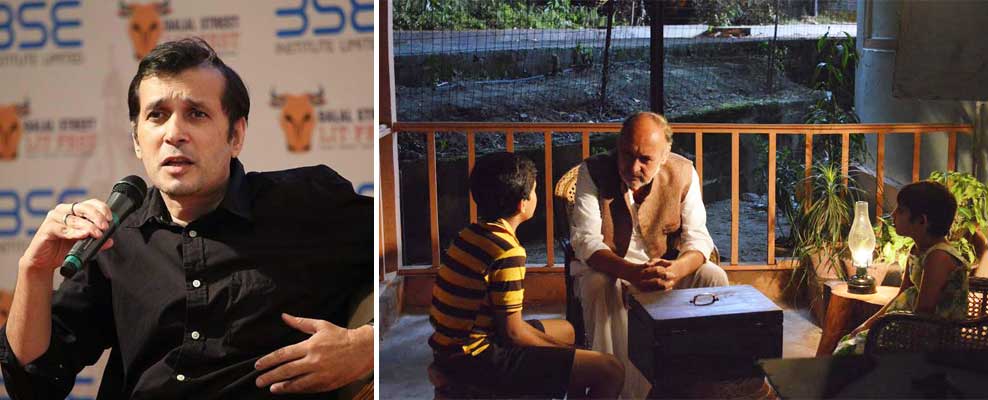
When I got an invitation for a private screening of Xoixhobote Dhemalite in Guwahati, the proceeds of which went to Moran Blind School in Upper Assam, I looked forward to it eagerly. And I must say Bidyut Kotoky did not disappoint me. A gripping script coupled with a strong storyline left its impact on me, a trifle more than others, since I grew up amidst the turmoil. I was transported back in time to those dark days of the eighties which were filled with apprehension, upheaval in our studies and stories of violence as the student led agitation reached its peak. The political scenario remains in the backdrop. What emerges close and personal, are the complexities of the mind affected by a traumatic situation.
A tacit reference to the Nellie massacre − reliving the horrific events from a child's perspective and their traumatic effects on the psyche, the film highlights how past horrors resurface and can catch one unawares at unexpected moments. Kotoky's anguish pours forth in his revealing words: "It has been thirty five years since Nellie in Assam saw one of Independent India's worst acts of violence, leaving about 1,800 people dead in a single day.”.
Kotoky's haunting memories led to the birth of his story line for Xoixhobote Dhemalite. It is semi-autobiographical − depicting scenes of violence which remained with him throughout his life. His reminiscing included a scene of a man hiding in his own backyard with a baby in his arms. The image of blood-splattered clothes and terror-filled eyes is as vivid as ever.
The name "Xoixhobote Dhemalite" is a reference to the fun-filled moments of childhood in Assamese. However, it is not a literal translation of the meaning of the words says Kotoky. Rather, it is an attempt to highlight the serious topic under the guise of a child's perception of violence and its inevitable imprint on the subconscious. In other words, the light-heartedness implied by the title is a direct contrast to the real message of the film.
A brother and a sister in the midst of their innocent play and blissful contentment of childhood happen to catch a glimpse of a settlement being burnt down and people fleeing for their lives to escape the frenzied mobs bent on relentless destruction. Their new friend also is a witness to the horror. Added to this are those unsavory characters who try their level best to create a disturbing atmosphere with arms and violence. The children find themselves embroiled in a serious situation by getting hold of arms which leads to one of them accidentally firing and scaring everyone. Chaos and mayhem ensue. The friendship is put on edge. All are traumatized to the extent that the little girl loses her power of speech and goes into a shell. Her parents try to draw her out with desperate entreaties, but to no avail. Then comes her maternal grandfather to the rescue. With his acting skills and tremendous effort, he manages to bring these children, specially his granddaughter from the brink of disaster. Though seemingly on the surface, normalcy is restored, the scars remain.
The rich cinematography was a treat to the eyes. As always, I enjoyed verdant and picturesque Assam and the awesome sound effects by national award-winning sound director Amrit Pritam of the "PK" and "Slumdog Millionaire" fame. Although, in certain parts, the pace could have been somewhat quicker and less detailed and here I did pick up comments of the audience later on, one cannot deny that it is an interesting play of emotions.
Starring in the film are veteran actor, Victor Banerjee, Nakul Vaid, Nikumoni Barua and model-turned actor, Dipannita Sharma. Equally important are the child actors, Maharnav Mahanta, Rishiraj Barua, Mrinmoy Medhi, Krish Talukdar, Hiya Kotoky and Jiya Barua who are totally natural in their roles and they provided the perfect foil to the exemplary performance given by Victor Banerjee.
The film speaks for itself and the viewers can decide for themselves how they want to analyze and interpret the nuances and inherent message. Speaking for myself, I left the theater with my heart hammering and my ears ringing with the fading notes of Amrit Pritam's amazing sound effects. A salute to Bidyut Kotoky and may he keep making his heart-warming films!
A proud moment for us all when " Xoixhobote Dhemalite" or "Rainbow Fields" won the award for best foreign film at the Hollywood International Cinefest in Los Angeles in 2017. It was another feather in the cap for National Award winning director, Bidyut Kotoky!
With this award, Bid
Other Articles in KULTURY VULTURY WOT
What to read next
Featured articles

Welcome Festive Season in Glam, Latin Quarters Launches new #PujoBling Collection with Monami Ghosh
by WOT





